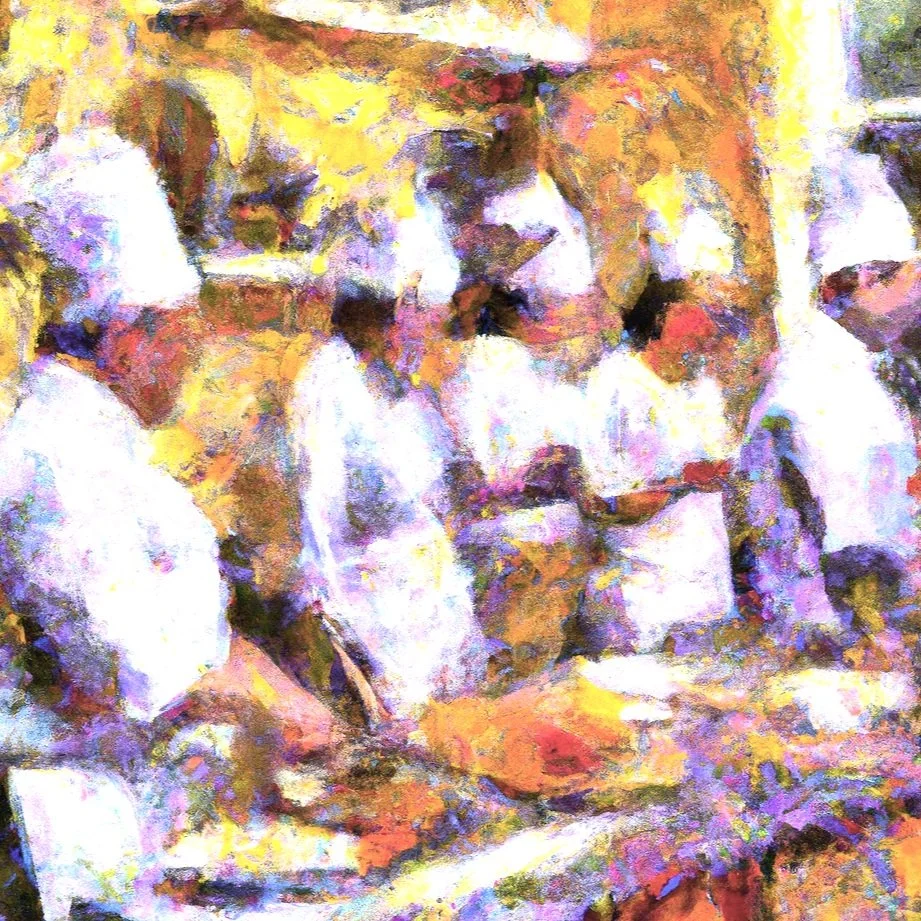Over the summer, I managed to take small breaks from work, traveling to Belgrade and Rome with friends and going camping with my family in Rheeze (a place up north in The Netherlands, where it rained for most of the time while we were there). I’m slowly getting ready for the upcoming school year by “micro-working” to psych myself up for the bump and grind of another season in academia; and as I do so, one of the books I read over the summer is giving me a lot of food for thought: Will Guidara’s Unreasonable Hospitality.
Full disclosure, I am a huge sucker for food-related books and TV shows. The first book that fish-hooked me into this genre was Anthony Bourdain’s acclaimed autobiography, Kitchen Confidential (may he rest in peace). I remember simply falling in love with how restaurants – especially the high-end ones – operated. The chaos and madness behind the pristine elegance. The fiery passion of the chefs to perfect their craft and their relentless dedication bordering on torment and psychosis. These days, anytime I need a jolt of inspiration or crave examples of explosive creativity, I go through Massimo Bottura’s Never Trust a Skinny Italian Chef. I love watching shows like The Chef’s Table or The Bear and find myself getting immersed in their world and I just can’t get enough of it.
Will Guidara is not a chef, but one of the most renowned restauranteurs in the world, who owned and operated Eleven Madison Park together with the James Beard Award winning chef, Daniel Humm. As such, Guidara’s book is not about cooking, but is about the business of running restaurants, what hospitality is, and how to create a culture and the team to become the best in the world at something. As such, the book is more about management philosophy than it is a cookbook or a chef’s tell-all. Nevertheless, I found his book to be absolutely captivating and thought-provoking.
The book also hit me on a personal level, because I’ve always loved to host and entertain people, to prep meals for hungover friends, or make Christmas dinners for students that couldn’t make it home to their families. I took pleasure in catering to their needs by paying attention to their subtle gestures and listening to what they were saying. I attribute this tendency to me growing up in Japan and being inculcated with practice of omotenashi, a kind of hospitality where the host pays attention to every detail and anticipate the needs of their guests (although admittedly, my sense of omotenashi has become rather dull since moving to the Netherlands as I’ve been told that this kind of hospitality is “too much” for the Dutch, but that is another post all together).
Without mentioning the word, Guidara essentially talks about omotenashi in his book. About how going above and beyond and “caring is cool” and the importance of making people seen and welcomed. As he notes, there is “nobility in service” and in everything that they do, there is intentionality and purpose (i.e. to amaze their customers and to make them feel valued). To create the world’s best restaurant, Guidara had to cultivate a strong and cohesive team and a culture to promote excellence, curiosity, and a sense of purpose and the book details this laborious process.
While restaurants and universities may not have much in common at first glance, I see a lot of overlapping similarities: For example, award-winning restaurants not only offer dishes prepared using quality products and impeccable cooking techniques that fuse together to create mastery of flavors, but call for attentive service and a level of hospitality that makes their customers feel unconditionally welcomed and heard. Similarly, it is not enough for universities to just teach up-to-date materials and impart relevant knowledge that prepares students for employment and society at large (the meal), but how we teach and how we connect with our students (the service) is just as important.
When I see new teachers, I sometimes see them fall into the trap of focusing too much on the meal (i.e. just trying to learn the materials that they have to teach) without paying enough attention on the service-end (i.e. listening to the students, paying attention to their needs, and connecting with them at a more human-to-human level).
Of course there are stark differences too between a restaurant and a university. The biggest difference being that we – as teachers – are not here to host the students as if they are customers at Michelin-starred restaurant, serving their every wish and whim. At times, we have the duty to impart difficult lessons and give them challenges that help them grow. From time to time, we even have to let them fail. Nevertheless, what I take away from Unreasonable Hospitality is the thought that there must be a way – without over-pampering or coddling the students – to make them feel heard and be offered a learning environment where they feel a sense of belonging. In other words, how can we incorporate various aspects of unreasonable hospitality into our education? In finding a way to do so, I truly believe that we can transform an ordinary classroom experience into an extraordinary one.

